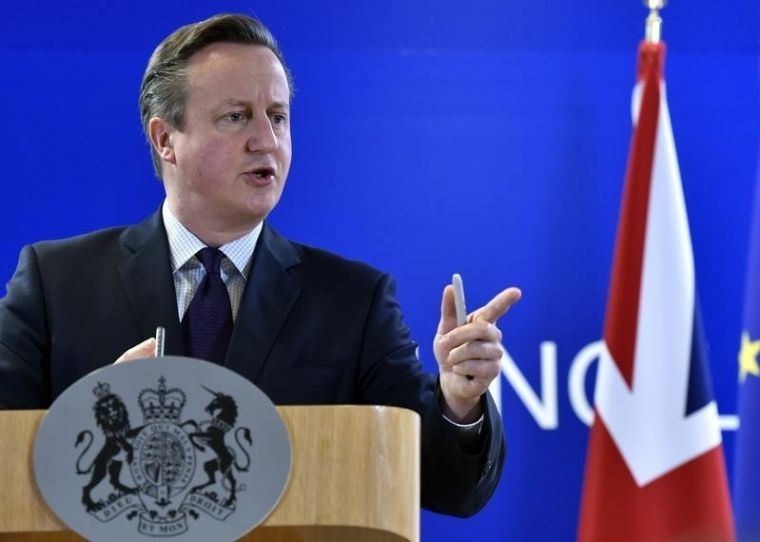Cameron says he will let ministers campaign for EU exit

Prime Minister David Cameron on Tuesday bowed to pressure to allow government ministers to campaign to leave the European Union in an upcoming referendum, heading off the prospect of multiple resignations from his top team.
Cameron wants to keep Britain in the bloc if he can persuade other EU leaders to agree to his demands for reform before a vote expected to take place later this year, though he has cautioned he could campaign to leave if he doesn't get a deal.
His move to prevent cabinet-level resignations over Europe means ministers will take opposing sides in the referendum campaign over an issue that has divided Cameron's Conservative Party for more than three decades.
"There will be a clear government position but it will be open to individual ministers to take a different personal position while remaining part of the government," Cameron told parliament during an update on his renegotiation.
He said he hoped to reach a deal with other EU leaders at a February 17-18 summit. Ministers would be expected to stick to the government's existing position until a deal was reached.
A referendum could follow about four months after a deal.
A British exit would rock the Union – already shaken by differences over migration and the future of the euro zone – by ripping away its second-largest economy, one of its top two military powers and by far its richest city, London.
Pressed by lawmakers over his own future, Cameron – who has said he will not lead his party into the next parliamentary election due in 2020 – said he would not resign in the event of a 'no' vote in the EU referendum.
"This is the choice of the British people...they can either choose to stay in a reformed European Union or to leave the European Union and come what may I will continue to lead the government in the way I have," he said.
"Pretty extraordinary situation"
Europe played a major part in the downfall of two previous Conservative prime ministers, Margaret Thatcher and John Major.
Around a third of Cameron's lawmakers may be at least toying with the idea of a British exit while up to a third of the cabinet – including Home Secretary Theresa May, Business Secretary Sajid Javid and Work and Pensions Secretary Iain Duncan Smith – have expressed Eurosceptic sentiments.
Ken Clarke, a former Conservative minister and leading supporter of the EU, said Cameron's decision was "unfortunate" and said ministers who disagreed with the official government line should resign.
"To stay in office, free to actually attack the government on a fundamental question about Britain's role in the world is a pretty extraordinary situation," he said.
Cameron's former coalition partners the Liberal Democrats accused him of putting "internal party strife" above the national interest in letting ministers campaign for either side.
Nigel Farage, the leader of Britain's anti-EU UK Independence Party, said Cameron had been forced into the move to hold his party together in the short term.
"He has stopped an explosion but longer term it is going to be very split by this issue," Farage told the BBC.











